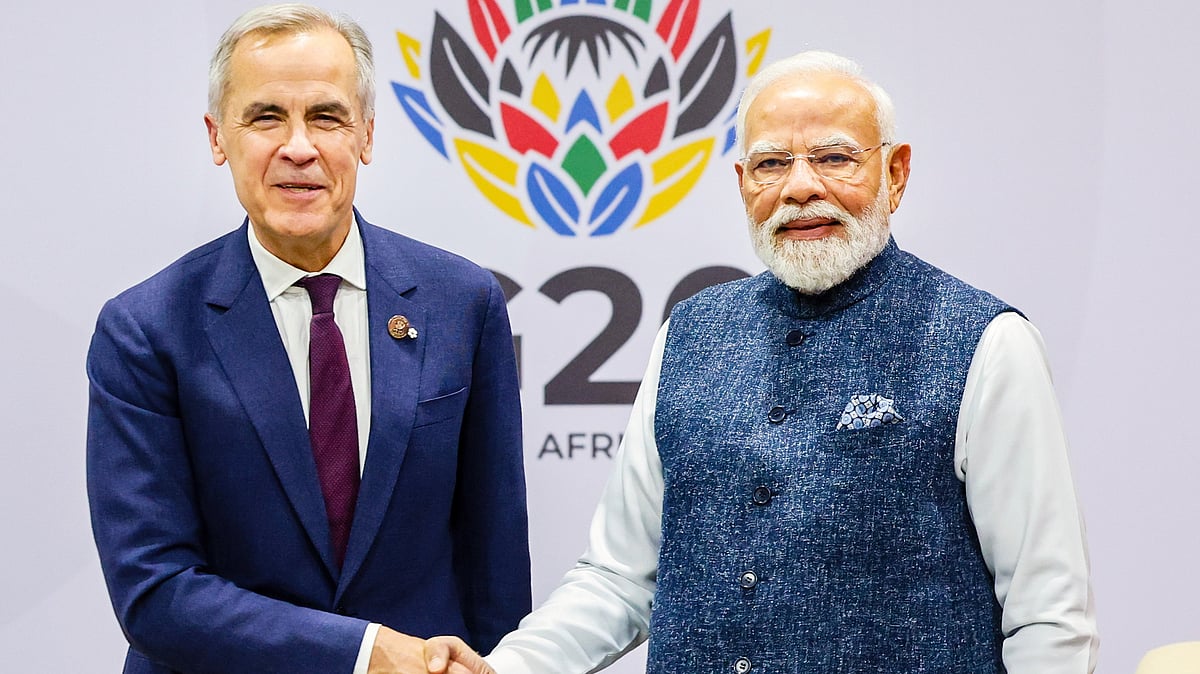World
Canada's top diplomat says Ottawa working fast to advance India trade deal
Canadian PM Mark Carney plans visit to India early next year as part of concerted effort to expand Canada’s trade horizons

Canadian foreign minister Anita Anand on Monday signalled that Ottawa and New Delhi intend to move rapidly toward reviving a long-delayed trade agreement, drawing a line under two years of diplomatic friction and framing the shift as part of Canada’s broader response to a more protectionist global climate shaped in part by US President Donald Trump’s trade policies.
Her remarks came after Canadian Prime Minister Mark Carney met Prime Minister Narendra Modi on the sidelines of the G20 summit in South Africa, where both leaders agreed to restart negotiations that had been frozen since 2023. Relations soured sharply that year when Canadian authorities publicly alleged Indian involvement in the assassination of Sikh activist Hardeep Singh Nijjar in suburban Vancouver — an accusation New Delhi has consistently denied.
“The leaders were adamant that the work proceed as quickly as possible,” Anand told the Associated Press in a telephone interview, stressing that the renewed push reflects a strategic shift in Ottawa’s foreign-policy outlook. Carney, she added, plans to visit India early next year as part of a concerted effort to expand Canada’s trade horizons.
Anand pointed to Carney’s ambition to double Canada’s non-US trade within a decade, a goal that underscores the country’s heavy reliance on the American market: more than three-quarters of Canadian exports currently go to the United States, most of them protected under the USMCA agreement, which itself comes up for review in 2026.
“There is a new government, a new foreign policy and a world in which protectionism is on the rise,” she said. “For a trading nation like Canada, this is a moment to reassess and re-engage.”
Published: undefined
Ottawa has also been working to repair ties with Beijing. Carney and Chinese President Xi Jinping held a rare meeting at the Asia-Pacific summit last month, marking a tentative effort to move beyond years of mistrust.
The freeze in India–Canada relations began in earnest in 2023, when trade negotiations were suspended after the Royal Canadian Mounted Police alleged that Indian agents had orchestrated Nijjar’s killing. The 45-year-old activist, an Indian-born Canadian citizen who ran a plumbing business and was once active in the Khalistan movement, was shot dead in his pickup truck after leaving the Surrey gurdwara he led. Four Indian nationals living in Canada have since been charged and are awaiting trial.
Diplomatic contact began to thaw this year. Carney invited Modi to the G7 summit in Alberta in June, and both countries reinstated their high commissioners in August. “This is a step-by-step process, and in the last six months, significant steps have been taken,” Anand said.
Both governments now hope to double bilateral trade to USD 50 billion by 2030. Canada is already India’s seventh-largest trading partner for goods and services and remains a substantial foreign investor in the Indian economy.
Anand also addressed Canada’s relations with Washington, strained intermittently under Trump, who abruptly halted trade discussions with Carney after an Ontario government advertisement criticising US tariffs irritated the White House — an episode that followed a tense period in which Trump mused publicly about Canada becoming the 51st US state.
Anand insisted that Ottawa is prepared to resume negotiations whenever Washington is ready. “The United States has fundamentally reset all of its trading relationships,” she said. “We look forward to getting back to the table.”
With AP/PTI inputs
Published: undefined
Follow us on: Facebook, Twitter, Google News, Instagram
Join our official telegram channel (@nationalherald) and stay updated with the latest headlines
Published: undefined